- Home
- Helen Dunmore
Counting the Stars Page 6
Counting the Stars Read online
Page 6
He hasn’t taken enough breath. He touches her ankle, then she slips away. His chest burns as he swims after her. She’s turning. She’s upright, and now she’s rising to the surface. A strong kick from her foot catches his shoulder. She’s swimming, not drowning. He hauls himself free of the water and bursts into daylight with his ears ringing.
And there she is, treading water, sleeking her hair out of her eyes.
‘You bitch, I thought you were drowning.’
She laughs. ‘I could easily swim from here back to shore if I wanted to.’
He glances behind him. There’s the boat. Lucky that he dropped anchor.
‘Clodia – let’s get back in the boat.’
‘Why?’
‘So we can row in. Look, there’s Aemilia pacing up and down at the water’s edge. She’ll be scared to death.’
He hasn’t even glanced behind him. He has no idea where Aemilia is, and cares less.
‘You’re such a liar. There’s no one on the beach.’
‘Maybe that lynx ate her.’
‘Much you care,’ she says. She looks quite different like this, with only her face showing above the water, her make-up washed off and her hair plastered to her head. He swims closer.
‘If I hold you, will we sink?’
‘Leave me alone, I want to swim.’
She dips her head under the surface again and it comes up streaming. Through the transparency he can see her breasts, pale and distorted by the surface glitter. Her body dwindles away to her feet. She lifts her hands and pushes her hair back again.
His tunic clings. His heavy belt and sandals drag at him.
‘Let me hold you,’ he says.
He puts his arms around her. She feels dense, solid, slippery. Her hair swirls and fills his mouth, and water rises, touching his lips, his nose, his eyes. They hang for a few seconds, and then they start to sink. She lets go of him and kicks, shaking her hair back so a shower of drops beats through the air.
‘Let me hold you,’ he says again.
She holds him tight and he feels that she’s laughing. He goes with her, down, down and then at the last minute she peels herself away again and they shoot back to daylight.
‘Why aren’t we able to keep afloat?’
‘Because you’re pulling me down.’
‘Let’s try again.’
This time she wraps her legs around his waist and they sink even more quickly. She clings like a monkey, even when he has used up all his breath. He starts to fight. He pushes her and pulls her head back by her hair. She still grips him. And then he lets go. He doesn’t care any more. Let her do what she wants. Let her drown them both and let them be dead and together.
– Clodia, he whispers inside the hollow of his head. Her name echoes, growing smaller. Clodia, Clodia –
But his body won’t let him drown. It seizes her, drops his head, opens his mouth at her white shoulder, and bites.
When they come up to the surface, she is crying.
‘You hurt me.’
There is a deep ring of tooth marks in her flesh.
He coughs up water, unable to speak. His body convulses, expelling the last dangerous drops.
‘Don’t touch me,’ she says. ‘I want to swim on my own.’
He swims slowly after her, to the boat. He’s exhausted. The side of their little boat looks as formidable as a cliff. She treads water, still weeping, too upset to clamber in. At least the boat has swung round and they are hidden from the shore. Wherever Aemilia is, she can’t see him.
He raises himself, grabs hold of the boat and then drags himself over the side, scraping his flesh. Shivering, he drapes the canopy over the side of the boat so she’ll be protected when he pulls her up. He kneels, reaching over the side, and grasps her under the arms. She lets herself be grasped.
He can’t lift her weight unless she helps him. She must push against the side of the boat with her feet and he’ll be able to lift her.
Slowly, draggingly, they get her into the boat. She isn’t really helping herself. Even when the blaze of the sun touches her, she shivers.
‘You’re cold. You must get dressed.’
She nods.
He sits in his wet clothes while slowly, tremblingly, she puts on her long tunic and ties her girdle. She doesn’t bother with her underwear.
‘I’ve lost my bracelets,’ she says, when she is dressed. ‘They must have gone to the bottom.’
We could have gone with them, he thinks. He tries to remember what her bracelets looked like.
‘Were they gold?’
She nods indifferently. ‘Throw the canopy into the water,’ she says. ‘It’ll only get in our way.’
‘Aemilia could untangle it.’
‘Let the fish make a home out of it.’ She seizes the tangle of cloth and wood, and heaves it over the side, but it refuses to sink. It lies across the water like the sail of a capsized boat.
‘Someone will find it, and try to guess what’s happened,’ he says.
‘They might think there’s a body wrapped in it.’
‘Baiae’s certainly got a reputation,’ he agrees. ‘All those late-night parties and nude bathing. I had great expectations when I came here, but so far it hasn’t lived up to them. I’m surprised how tame it all is.’
‘Baiae is famous for adultery,’ she says, with an air of defending the town’s reputation against unjust attack. ‘There are far more adulterers here than in Rome, proportionately.’
‘Proportionately?’
‘Yes, they’re cram-jammed into Baiae like slum-dwellers in a tenement. Don’t ever let your wife come here for the summer season, if she’s an upright Roman matron. Which naturally she will be. Even the purest of them will change when the Baiae wind blows through their hair. They soon discover that you can find anything you want at the bathhouses.’
‘My wife!’ he says quickly, stifling a desire to ask her for more: which bathhouse, when, and how does she know? ‘What makes you think that I’m going to marry?’
‘Of course you’ll marry. It’s your duty,’ she says, as if she’s twenty years older than him instead of only ten. ‘You have to secure the family name. Your brother has no children, has he?’
She sounds like one of the matrons she’s just mocked.
‘Was it your duty to marry, Clodia?’
‘Of course. What else is there for a girl but to marry? Even her virginity doesn’t belong to her. A third of it belongs to her mother, a third to her father, and only a third to herself.’
‘Did you believe all that?’
‘You’ll believe anything when you’re fifteen. I was young for my age in some ways. But let’s row in. This sun is beginning to burn me. Look, your clothes are almost dry already.’
She rubs the cloth of his tunic between her finger and thumb. The bite on her shoulder is hidden. Her husband will see it, he thinks. That ring of tooth marks is unmistakable. But she seems unperturbed. She’ll manage it, he supposes, the way she manages everything else. Aemilia will paint it with paste, and bandage it, and say it’s an infected insect bite. What man would ask to spy under his wife’s bandages?
‘So who introduced you to Baiae?’ he asks. ‘Your husband?’
She makes a quick, dismissive gesture. ‘He’s broken the habit of a lifetime to come. Haven’t you heard that he only came for his health? He’d be far happier talking to the farmers about the prospects for harvest.’
‘Surely he has stewards to do that for him?’
‘But he likes to do it himself. He counts things over in his mind. That’s how he is. Position, property, people. Not gold: that’s too base for him. He has accountants to know about that. I am part of his counting, and again, that’s why he’s here this summer. Maybe his doctors did warn him to ease up and take the waters, or maybe they didn’t. But something tells him things aren’t quite right. He’s got wonderful instincts; I never make the mistake of underestimating them. I must be reckoned, like a sheep who has got out of the fo
ld. I must be counted back into it.’
‘Shall I take both oars, or would you like to row with me?’
‘You row.’
She trails her hand in the water. There is no hurry. Her skin won’t burn, even without the canopy or the parasol. She has wrapped her scarf so that her face is completely protected, and her light embroidered silk shawl covers her arms and shoulders. He can’t see her expression. He rows slowly, rhythmically, heading not directly for shore but in a wide circle that will bring them gradually to the little cove. He doesn’t want to let go of her.
‘Yes,’ she says out of nothing, ‘I was married and since then my life has been the same.’
‘You gave birth to your daughter. You’ve written poems.’
She sits up. ‘Poems? You and I know the worth of my poems. Next to yours they are like grains of dust in a field of stars.’
He considers the simile, mildly approves it, then takes her meaning.
‘They are not as bad as that,’ he says, truthfully.
‘No. You’re right, they’re not as bad as all that. If they were, I’d stop writing them. But isn’t it interesting how we keep on dancing, or playing the lyre, or writing poems, even when we’re perfectly aware that the performance is really not that good compared with what others can achieve? And one daughter, that’s not so bad either. But not quite so good as to satisfy my husband. Look where you’re going. You’re heading for the horizon, not for the shore.’
He digs his right oar in, and the boat begins to turn. The light has changed. It’s no longer the white heat of midday, which strikes the back of the neck like an axe. It’s thickening now and becoming more golden. They must have been out on the water longer than he realized.
He wants to ask her: Are those rumours true, about you and your brother? Pretty Boy Clodius and beautiful Clodia…
No, of course he doesn’t want to ask her. He’s learned by now, surely, not to ask questions when he may find the answers unbearable. This is one lesson that Clodia has taught him thoroughly.
Clodia at fifteen. He’d have been – what? – five, perhaps six. Even if he’d been brought up in Rome and not Verona, even if he’d known Clodia and talked to her, he wouldn’t have noticed her. She’d have been a grown-up; a pretty lady. If he’d been one of the crowd of children in the street outside the bridegroom’s house, he would have tried to join in the chorus of the wedding songs, and scrambled to pick up the nuts when they were scattered. Would anyone have taken any notice if a little boy had cried out, ‘No! Don’t marry him! Wait for me, Clodia, wait for me!’
She would have worn a wreath of marjoram flowers, a saffron-coloured veil and saffron sandals. She’d have been nervous. Or perhaps she’d have been in control, as she is now, casting down her eyes only because this intensifies their sudden, wide, lustrous lifting.
No. Not completely in control, not then. But he’ll never be able to reach or touch that Clodia who really might have been shy, frightened and at a loss.
your golden feet –
lift them over the threshold
with bright omens
At a loss, because everything in the ceremony celebrated her virginity, and they say she was not a virgin. She’d been used by her brother, who was ‘fully a man at eleven’. Penetrated, and left fearing exposure on her wedding night.
Or so they say. It could easily be a lie. Pretty Boy makes enemies as fast as he makes friends. Scheming, ruthless, ambitious and magnetic, what Pretty Boy wants Pretty Boy usually gets. His private army grows more dangerous month by month. His power-base among the plebs is formidable. Even Catullus, who’s in the habit of dismissing politicians – ‘They’re all the same – corrupt and power-mad’ – has to admit that Pretty Boy Clodius is in a class of his own.
But Clodia loves her brother. Everyone knows that. Whatever he does, she shrugs and accepts it. Why shouldn’t her brother run Rome, if he chooses? He has passion, at least. He loves the people and wants to defend their interests. Of course all the conservatives hate him for that.
Catullus thinks that ‘passion’ is the wrong word. Pretty Boy is wilful on a scale that takes your breath away. Those eyes stare through everyone. He doesn’t love the people, but he knows how to manipulate them as skilfully as any actor. With the backing of his rabble of thugs, runaway slaves and gladiators, he intends to give Rome what it thinks it wants. He gets away with everything. Even dressing up as a woman and penetrating the secret rites of the Good Goddess hasn’t destroyed him. He sailed through his trial for blasphemy and left people shaking their heads not in horror but in perverse appreciation. They’d have given something to see Pretty Boy in his women’s clothes, his beautiful eyes glittering as he picked up his skirts and outran his pursuers.
Clodia loves her brother, whatever has happened between them. And what did Metellus Celer make of his bride? He could have thrown her out, if she was not a virgin. He’d have had law and custom on his side.
But perhaps the bridegroom loved the bride. That’s something Catullus hasn’t considered. Perhaps his love was so great that it lifted itself like those golden sandals and crossed the threshold of that night when the virgin proved not to be a virgin.
in him no less the fire
than in you the fire
but it burns inward, hidden
Of course it’s not true. The marriage wasn’t a love match, but an arrangement between cousins. No fire burns between Metellus Celer and his wife, as it burns between Catullus and Clodia. The same fire consumes them both.
He lifts his oars and a stream of water glitters off them, reducing itself to drops just before the oar plunges back. He has his back to Aemilia but he’s sure that she’s there, waiting on the shore like a future neither of them can escape. He’s had his hour or two with Clodia. It’s childish and unreasonable to expect more. An affair must not become strident and force itself in the faces of those who are trying to uphold standards.
Hypocrisy is a beautiful thing, he thinks, looking at Clodia’s dreamy, downturned head.
There’s sweat on his back. He’s like a slave at the oars, going to a destination he doesn’t want and hasn’t chosen. Back to the familiar, the familia where Clodia belongs. And she won’t break out. She wants her husband and the court she holds in her house on the Clivus Victoriae. She wants her poet, too, and the borrowed bolt-holes, the midday sweat and the insistent cheep of a sparrow that can’t believe it’s being, for once, ignored. She’s like her brother, who wants to be swept to power on the shoulders of the mob while he retains the privilege of Rome’s ancient ruling families. They want the gutter and the crown. They want everything.
Sweat trickles down his forehead and into his eyes. So she knows that her poetry is not much good. He hadn’t thought she would admit it, or even be aware of it. She is surrounded by flatterers, who praise her dancing, her singing, her poetry. She has grace in all she does, but no more than that. A field of stars. That’s what she is to him, and she doesn’t know it.
‘You should marry me,’ he says.
Six
By early evening the wind has begun to blow. The sun is clouded and brassy. The heat is stifling. There’s a storm coming.
The slaves are closing shutters, barring windows. A devil of dust and dead leaves leaps across the terrace. All the way along the coast, from every villa, a dog howls. From the olive groves there is an uneasy clamour of birdsong.
The sky is darkening. Catullus will not allow them to close the dining-room shutters: he wants to see the storm. They serve dinner but he is almost too restless to eat. Besides, who wants to eat alone? Suddenly his deliberate solitude seems crazy. It has nothing to do with poetry.
The first growl of thunder is far away. Antonius stands still, counting, with a platter of roast mullet in his hands.
‘Still five or six miles away.’
Lightning flickers, cutting through the gloom.
‘Shall I light the lamps?’
‘No, Antonius, let’s see the storm.’
/> He takes a few mouthfuls of the fish. It’s fresh and good, but he has no hunger for it. Antonius looks pleased as he carries the plates away. They will appreciate mullet in the kitchen.
A jagged zizz of light, a couple of seconds’ pause, and then a clap of thunder. The storm has reached them. He gets up and goes to the window. A few big drops fall on the courtyard, kicking up a sharp smell of dust, but the real rain still hasn’t come. The sky is dark as metal, with pale rims around the heaped thunderclouds. He drops his napkin, leaves the dining room and goes out of the villa on to the terrace.
The wind is blowing hard now, hot and suffocating. His tunic flaps against his body. A crease of light runs down the livid sky. Another crack of sound, but still no rain. He goes to the edge of the terrace and looks down through the olive trees which thrash in the gusts of wind. Their leaves flail, silver against black. Another streak of lightning splits the sky, and he thinks he sees a figure, deep in the olives, cowering for shelter. A woman, wrapped in a long cloak. The branches whip backwards and forwards, hiding her.
Clodia.
The thunder breaks, almost on top of him. With a roar, the rain comes, whiting out the trees. Within a few seconds, his clothes are plastered against his skin.
He runs downhill in a white confusion of lightning and rain. A spate of loose stones and washed-away soil rushes after him, as the dried-up stream grows into a torrent, frothing white at his feet. He heads for the trees where the woman was. Lightning comes down the sky like a ladder at his right hand, almost touching him. He smells something hot, metallic, acrid. It’s sulphur: the smell of lightning itself. Something has been struck. Thunder bursts above him, shaking his whole body.
He cannot find her. She is somewhere inside the storm, close to him. He pushes through the branches, reaching out for her.
‘Clodia!’
He sees her in another explosion of lightning. She is under a tree, crouched against it, rain running off her.
‘Clodia!’
He’s found her. He has hold of her. He lifts her up, into his arms. She smells of rain and she is cold. He pulls her into his own body, sheltering her, protecting her.

 The Ingo Chronicles: Stormswept
The Ingo Chronicles: Stormswept The Deep
The Deep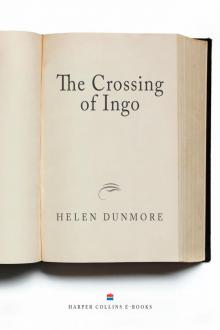 The Crossing of Ingo
The Crossing of Ingo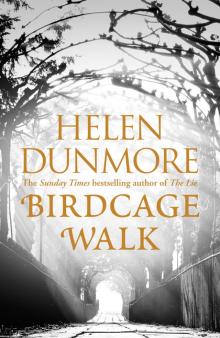 Birdcage Walk
Birdcage Walk Glad of These Times
Glad of These Times Counting the Stars
Counting the Stars With Your Crooked Heart
With Your Crooked Heart Burning Bright
Burning Bright House of Orphans
House of Orphans Mourning Ruby
Mourning Ruby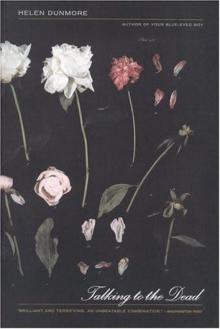 Talking to the Dead
Talking to the Dead Exposure
Exposure Ingo
Ingo The Malarkey
The Malarkey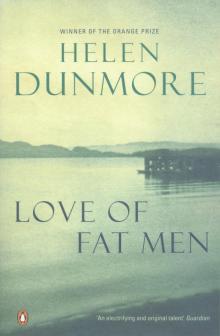 Love of Fat Men
Love of Fat Men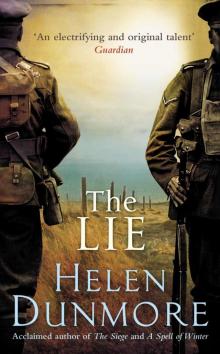 The Lie
The Lie The Siege
The Siege Inside the Wave
Inside the Wave Counting Backwards
Counting Backwards The Land Lubbers Lying Down Below (Penguin Specials)
The Land Lubbers Lying Down Below (Penguin Specials)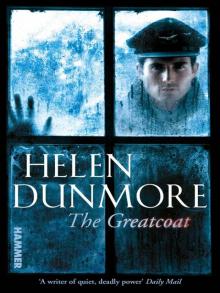 The Greatcoat
The Greatcoat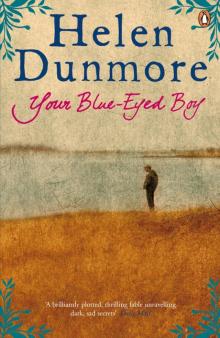 Your Blue Eyed Boy
Your Blue Eyed Boy Zennor in Darkness
Zennor in Darkness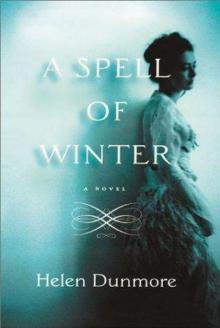 Spell of Winter
Spell of Winter Out of the Blue: Poems 1975-2001
Out of the Blue: Poems 1975-2001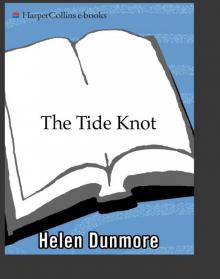 Tide Knot
Tide Knot The Betrayal
The Betrayal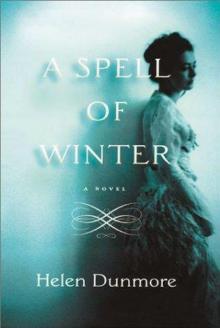 A Spell of Winter
A Spell of Winter Out of the Blue
Out of the Blue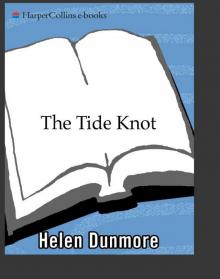 The Tide Knot
The Tide Knot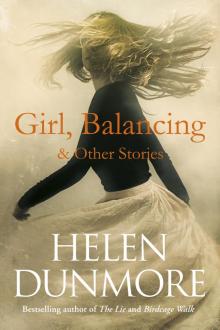 Girl, Balancing & Other Stories
Girl, Balancing & Other Stories Betrayal
Betrayal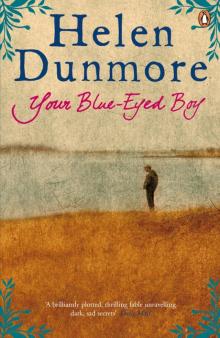 Your Blue-Eyed Boy
Your Blue-Eyed Boy